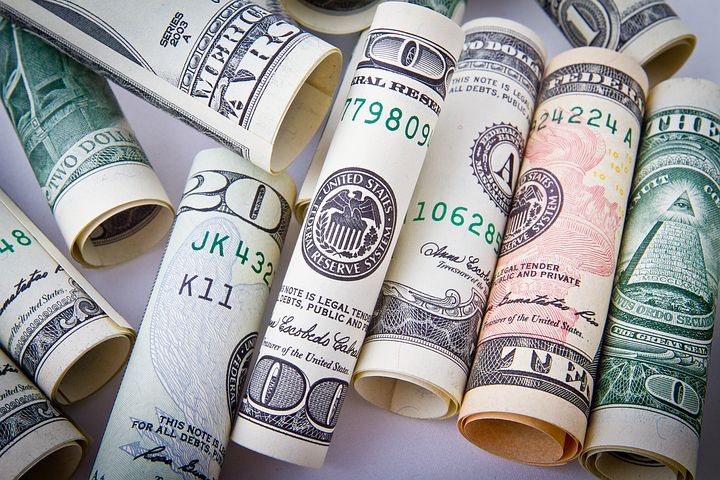Binary Options Regulations from A to Z
- Binary Trading
Binary options are sometimes referred to as “all-or-nothing” investments. If you correctly predict that an asset is above a certain value at a certain time, you make a profit. But if you’re wrong, you lose all of your investment.
The simplicity of binary options has made them a popular choice with investors. You don’t need a big initial investment, you’re not dependent on what’s happening in the stock market, you can accurately predict gains or losses, and the whole process is quick and easy. However, concerns over unfair and illegal business practices have cast a shadow over this form of trading, to the extent that binary options are now illegal in many parts of the world.
In those countries where binary options are regulated, they continue to thrive. Elsewhere across the globe, however, many financial authorities have regulated binary options out of existence and banned them outright. In terms of the major global financial markets, binary options are currently legal in Australia, China, Japan, and the USA, but banned in Canada, India, the UK, and most of the EU.
To help you cut through the confusion over binary options regulation, we’ve put together this concise A to Z guide on the topic: from Astonishing Returns to Zero Profits!

BINARY OPTIONS REGULATION
Binary options regulations differ greatly across the globe. In the USA, they’re primarily regulated by the Securities and Exchange Commission (SEC) and the Commodity Futures Trading Commission (CFTC). In Japan, that role is fulfilled by the Financial Futures Association of Japan (FFAJ). The China Securities Regulatory Commission (CSRC) doesn’t currently have any formal regulation around binary options.
In the EU and UK, regulators have been vociferous in their opposition to binary options. In April 2019, the UK Financial Conduct Authority (FCA) outlawed them completely. On the part of the EU, the European Securities and Markets Authority (ESMA) has consistently banned and campaigned against them on a pan-European basis. More recently, however, ESMA has rolled back on such a course of action, because national financial regulators in most EU countries have now banned binary options. Cyprus is one notable exception, as binary options remain legal there.
THE IMPORTANCE OF WORKING WITH REGULATED BROKERS
It might seem an obvious thing to say, but the best way to avoid being ripped off is to trade with regulated binary options brokers only. That way, in the event that anything does go wrong, at least you’ll have some form of comeback. And as ever, prevention is better than the cure. There have been a number of high-profile cases involving fraudulent traders and sharp practices, so if you have any doubts about a broker, you should walk away, especially if they’re unregulated.
Some investors circumvent the ban on binary options in their country by using brokers from overseas. However, there are many potential dangers of working with foreign companies: these include lighter-touch regulation, language barriers, exchange rate fluctuations, and the added complications of registering a complaint in a foreign jurisdiction. As an example, some regulators may not deal with grievances from non-nationals.
If you do play the markets outside of your country, you can secure a greater degree of protection by investing in ASIC regulated binary options (Australian Securities and Investments Commission) or employing CySEC regulated brokers (Cyprus Securities And Exchange Commission).
COMMON BINARY OPTIONS SCAMS
Some opponents of binary options claim that this form of trading is actually a scam in itself, with unfair odds that are inherently stacked against the investor and in favor of the broker.
Notwithstanding that opinion, common scams around binary options include phony brokers, sneaky terms and conditions, and the promise of unreal returns. Fake celebrity endorsements are a popular tactic, as is setting up a bogus website that looks like it belongs to a legit company. And regrettably, some legitimate-looking brokers simply disappear overnight once they’ve taken your funds.
It’s all too easy to get caught up in the excitement, immediacy, and potential high returns of binary options trading. To succeed, you need a calculated, informed and balanced approach, so it’s important you don’t let your heart rule your head. Before you invest, make sure you understand exactly how binary options work, and also that you’re being offered a fair deal. There are plenty of dishonest brokers out there who are ready to part you from your hard-earned cash. Remember that if something looks too good to be true, it generally is!

WHAT TO DO IF YOU’VE BEEN SCAMMED
If you think you have been scammed by a broker in your own country, your first port of call is the national financial regulator. However, if you have used an overseas broker, that option may not be open to you. It’s also a sad reality that many unregulated or fraudulent brokers are extremely good at covering their tracks or making it nigh on impossible to contact them.
However, the good news is that even in the most serious cases, you may be able to get your money back. Companies that offer a dedicated funds recovery service – PayBack is a great example – have an excellent track record of successfully chasing down fraudulent brokers and returning lost or stolen monies. Bullying fraudsters who face down individuals often act quite differently when they are confronted by experienced legal and financial professionals who know what they are doing. If you have been ripped off by fraudulent traders, you should definitely consider this option: you have nothing to lose and everything to gain.